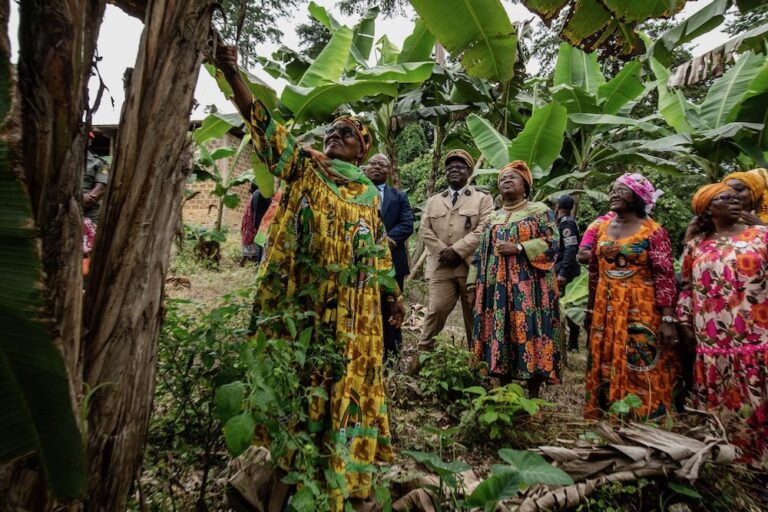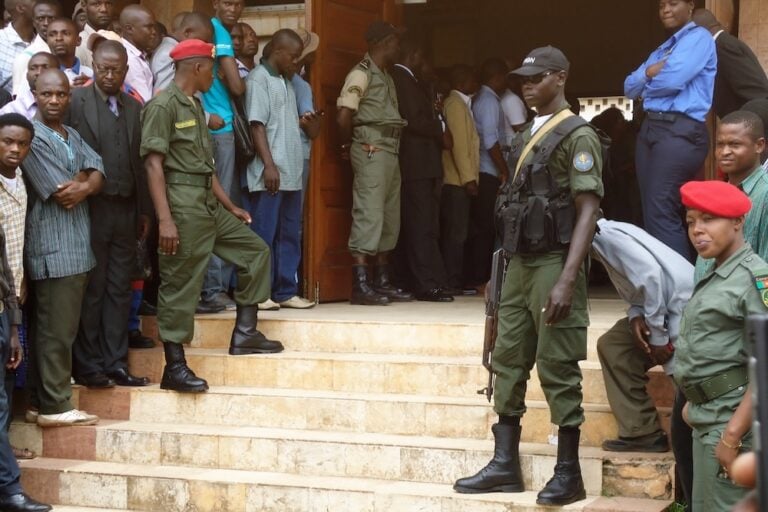Bibi Ngota died "as a result of infections linked to HIV, in a context in which his immune system completely collapsed," the report indicated.
(RSF/IFEX) – Reporters Without Borders is appalled that an enquiry ordered by the president into a journalist’s death in prison in April 2010 has come to exactly the same conclusions as to the cause of death as the explanation originally offered by the authorities.
The findings of the investigation into the death of “Cameroun Express” editor Ngota Ngota Germain (aka Bibi Ngota) in Yaoundé’s Kondengui prison on 22 April were presented to a meeting of journalists on 14 September by justice minister and deputy prime minister Amadou Ali.
Quoting from an internal report by Norbert Francis Ndi, the chief doctor at the Kondengui prison infirmary, Ali said Bibi Ngota died “as a result of opportunistic infections linked to HIV, in a context in which his immune system had completely collapsed.” No signs of torture were found on the body, he added.
This is an almost exact repeat of what communication minister and government spokesman Issa Tchiroma Bakary said just four days after Ngota’s death, when he insisted that it was linked to his being HIV positive and not to any mistreatment. Bakary said Ngota voluntarily underwent an HIV test when admitted to the prison but died before follow-up tests could be carried out. Cameroonian doctors and human rights organisations criticised the disclosure of his personal medical details.
Reporters Without Borders deplores the position taken by the Cameroonian authorities and refuses to believe the version they are trying to impose on the public. The investigation was biased and there are no grounds for thinking that the truth has come to light.
The authorities are embarrassed by Ngota’s death in connection with a story linked to the president’s chief of staff and clearly want to close the case as quickly as possible, especially as it involves serious procedural violations, including violation of the presumption of innocence. Ali’s refusal to take questions from journalists at the news conference was further evidence of this.
Bibi Ngota’s widow, Georgette Ngo’o, told Reporters Without Borders: “I am traumatised by this case. I knew my husband perfectly well. We lived together for 13 years. Bibi was ill when he entered the prison. He had high blood pressure and diabetes, but he did not have the AIDS virus. I cannot accept the official version. All this has been staged in order to hide the underlying fact that my husband and his colleagues were arrested and placed in provisional detention although no complaint had been filed against them.”
Bibi Ngota and two other newspaper editors, Serge Sabouang of the fortnightly “La Nation” and Robert Mintya of the weekly “Le Devoir”, were jailed on 10 March. Sabouang and Mintya are still being held on a charge of forging the signature of the president’s chief of staff.
Mintya’s health is extremely worrying. He was physically attacked in his prison cell in August and had to be hospitalised for several days.
Reporters Without Borders reiterates its call for the provisional release of Mintya and Sabouang. After more than six months in provisional detention, they must either be brought before a judge as a matter of urgency or they must be released without delay.


